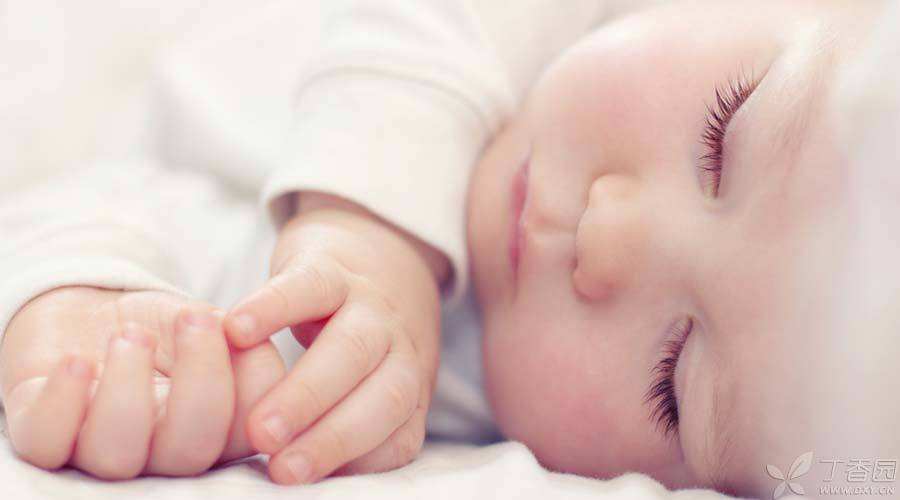
Many parents are familiar with feeding, but they don’t know much about baby sleep, and often tend to believe in some widely circulated wrong experiences in life.
Want to know if I am a qualified parent who knows the baby’s sleep? Look at the following points. Have you been hit?
Myth 1: If you are tired, you will sleep.
If you are tired of playing, you will be sleepy.
I was too tired to sleep naturally.
Analysis: For infants, the more sleep they lack, the more sensitive they are and the more uneasy they sleep.
Children who are too tired to collapse will find it difficult to fall asleep, and even if they fall asleep, they will probably not fall asleep naturally. When they are too tired, it is often difficult for children to appease themselves during the process of falling asleep. The more sleepy they become, the more they cry, and the difficulty of coaxing them to sleep will soar.
Although sometimes children will eventually fall asleep when they are extremely tired, they basically fall asleep suddenly at the end, which is an unhealthy collapse sleep.
The reason why [you fall asleep when you are too tired] is very popular is that it conforms to the sleep experience of adults to some extent, but it is fallacious to apply it to infants.
In short: It’s like eating to the extreme and hurting your stomach. If you’re too tired, falling asleep is also painful.
Myth 2: No sleepiness, no sleep
I was in such good spirits and had such a good time that I didn’t sleep at all.
You see TA is not sleepy at all and does not mean to sleep.
Analysis: Babies’ sleep signals are very different from adults’, but the more sleepy they become, the more excited they become.
Sometimes too much stimulation is given, and drowsiness signals will be hidden and difficult to detect when the baby is awake.
At first glance, the baby is in good spirits and has a good time, which is a wake-up feature for adults, but it may be one of the manifestations of excessive fatigue for babies. Try to change the quiet environment for the baby and stay away from stimuli, TA may start yawning immediately.
In short: Many people play mahjong until midnight and look [very energetic]. Not all of them yawn, but they are already sleepy and are carrying hard.
Myth 3: Not sleeping is not sleepy,
I don’t sleep because I’m not sleepy.
Don’t sleep if you don’t want to.
Analysis: [Not sleeping] is an objective phenomenon, but in fact the description is not accurate. To be more specific, it should be called [not sleeping].
[Not sleeping] emphasizes the subjective will of the baby, which means that the baby [is unwilling to sleep]; [Not asleep] is only a description of the phenomenon, there are [want to sleep but not asleep] and [don’t want to sleep so not asleep] two kinds of.
Babies cannot pull curtains, turn off lights, take off their clothes, climb to bed by themselves… smaller ones cannot even turn over and lie down on their own… this is a physical limitation. Emotionally, their self-control ability is still at an early stage of development, and the curse of getting more sleepy and excited has not yet been broken…
Not sleeping may not be sleepy, but more often it may be the baby [who wants to sleep but does not have a suitable environment to sleep and is unable to sleep].
For adults, if you don’t coax the baby to sleep, you can continue to play with the baby, and this can also temporarily stop the baby crying. However, this is actually a matter of parents being lazy, and raising cannot be such a [shortcut]. Parents should better help their children fall asleep when they are sleepy, and don’t give up coaxing their children to sleep because they don’t want to sleep too easily.
In short: If you don’t sleep, it may be that parents won’t coax you. It’s OK not to sleep, but are you sure your child doesn’t want to sleep?

Myth 4: When you are big, you will get better.
Habits need not be cultivated, let nature take its course, and when you get older, you will naturally sleep.
This is how we all got through it! When you are big, you will get out of it!
Analysis: Sleep is closely related to brain development. Older children do look better at sleep than young children. However, regardless of the future situation in what, the current day is still very important.
If good habits can help children sleep better, why not?
However, this [nature] needs good guidance and is not subject to too much improper human intervention. It is not uncommon for children to still lack sleep and cannot sleep peacefully until they are 2 or 3 years old after being subjected to inappropriate human intervention but allowing them to develop freely.
In short: Feelings can sometimes deceive people. If you don’t observe carefully enough, then don’t trust your so-called [intuition] too much. Good habits are the foundation. You need to start with intravenous drip. Don’t fight for luck or gamble on the future.
Myth 5: Sleep Too Much to Don’t Sleep
I slept too much so I didn’t sleep.
Analysis: Sleep can promote sleep. The less sleep babies sleep, the more likely they are to be nervous and excited due to lack of sleep, unable to sleep peacefully, and wake up soon after falling asleep.
There are also cases where you sleep less during the day and sleep soundly at night, but the proportion is less. With the increase of age, the sleep during the day and at night will gradually decrease, but this turning point will not gradually appear until 9 months to 1 year old.
In the first few months of life, babies may even need twice as much sleep as adults, so many people are intuitively prone to mistaken babies for [sleeping too much]. At present, many large sample research results show that babies generally sleep too little, and the so-called [sleeping too much] situation does not exist in many families.
In short: The more you sleep, the easier it is to fall asleep. For small babies, there are many reasons why you don’t sleep, but most of them are not because you sleep too much.
Myth 6: Can’t sleep during the day
Sleep too much during the day and don’t sleep at night.
Only when you don’t sleep during the day can you sleep well at night.
Analysis: This has a similar starting point to the previous one. It thinks that sleep is an account in a bank. If you raise money during the day, you don’t have to raise it at night.
In fact, it is still the principle that sleep promotes sleep: taking sufficient naps on time during the day can ensure the children’s good state during the day.
For example, a 4-month-old baby may still need 4-5 hours of naps during the day. This time is normal, but it is far more than many adults think. A 2-hour nap during the day is very long for adults and can even be called too much sleep, but it is not suitable for infants.
In short: just as you don’t eat breakfast, you can’t leave your stomach for dinner. Sleep when it’s time to sleep, you can’t save it, otherwise you will probably get hungry in vain.

Myth 7: Sleep Less by Nature
Eva is born to sleep less and likes to sleep late.
Other people’s children also sleep less.
Analysis: The problem with this rumor is to try to use the explanation of individual differences to cover up sleep problems that may be caused by improper parenting.
Eva didn’t sleep probably because you turned on the light to amuse TA. Maybe it was because the somebody else was only half confused and had a few dreams and wanted to go back to sleep. You rushed up and picked it up and said, Ha ha baby woke up!
It is not ruled out that there are children who are born to sleep less, but before observing the improvement, don’t rashly draw the conclusion that children just sleep less.
In short: As the saying goes, [3 points depend on fate, 7 points depend on struggle], don’t regard sleeping as 9 points depend on fate.
Myth 8: Too much sleep makes you stupid,
Children who sleep all day are pedantic.
Smart children feel less.
Analysis: Babies’ brains develop rapidly and sleep for more than half of the day, which meets their physiological needs and characteristics.
In fact, the mechanism and function of sleep have not been completely determined so far. The effect of sleep on physical recovery, Needless to say. In addition, some studies have pointed out that sleep is related to memory, and memory is better after learning to sleep. Of course, on the other hand, learning mainly occurs during the awake stage, and not enough stimulation, lethargy during the time when awake is needed, also has bad effects.
In short: It is foolish not to let your child sleep when it is time to sleep. Lack of sleep will damage your child’s intellectual development. If you try all the methods and your child still sleeps less, please comfort yourself [sleeping too much will make you stupid], at least it is better to let yourself worry too much.
Responsible Editor: Yidan
